Clever Ideas to Borrow from Park Ridge Organics
Park Ridge Organics, a small vegetable farm in Fond du Lac, WI, thrives on finding efficiencies and innovative ways to increase profit. Here are several ideas you can try out on your own farm.
-
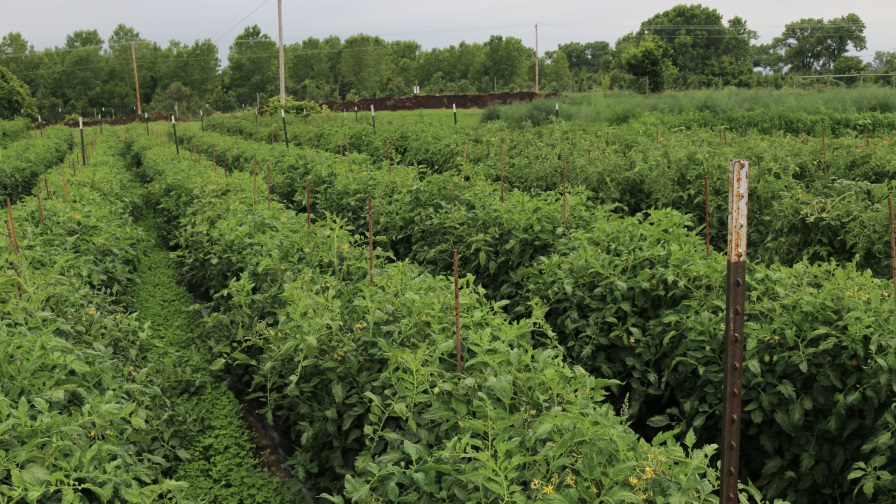
-
1 of 9
Using Orchard Sprayers for Vegetables
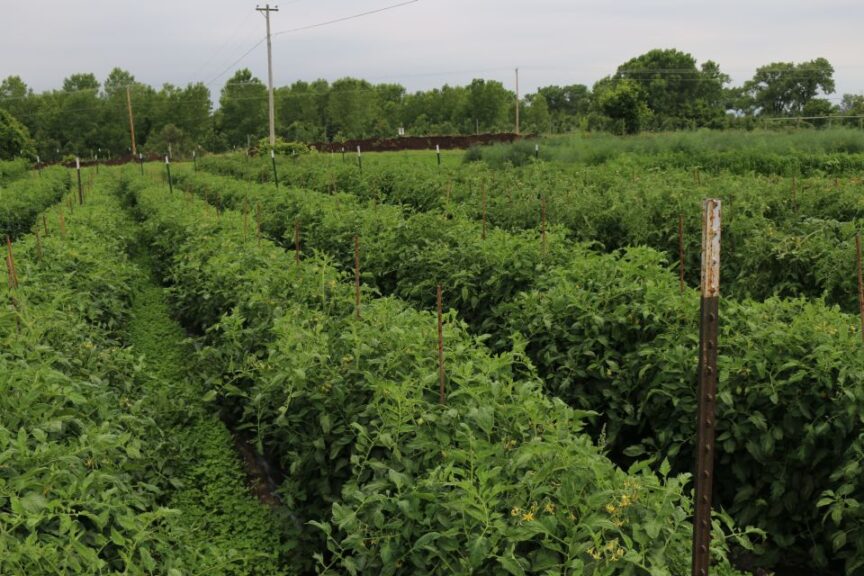
The Park Ridge Organics team has developed a spray method that trims time in the field. The farm uses an Airblast mist sprayer that's usually used by orchards (purchased from Spray Innovations).
The sprayer puts out an extremely fine droplet, allowing the farm to apply its copper-based fungicide 50 feet into the field.
"What I find interesting is it got into nooks ad crannies," says Park Ridge Organics owner Robyn Calvey.
The sprayer is attached to a tractor, which Calvey will drive around the perimeter of her tomato and brassica fields. This past season, the plot was 130-by-100 feet. Since tomatoes grow fairly tall, Calvey found more success with blowing the fungicide up the rows rather than from the side. That created a problem with the 130-foot length. With 50 feet from each side, it left roughly 30 feet untreated.
"The disease that came in was in the center. It could be due to the conditions, but just in case I think a 100-foot row is the ideal," Calvey says.
-
2 of 9
Paper Harvest Estimates Better for Field Work than Electronics
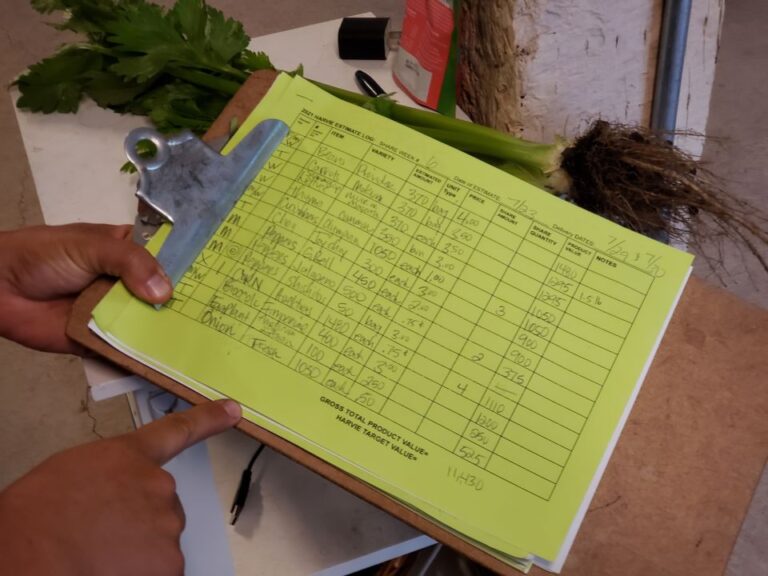
Although Park Ridge Organics embraces technology, it found old-fashioned clipboards and paper harvest estimates are best for working outdoors.
The farm uses the Harvie CSA software system, which requires estimates of which produce will be available to customers several days prior to the pickup date. So the team takes this simple spreadsheet through the fields, estimating what will be ready for the next CSA delivery.
One reason the print out works so well is Park Ridge Organics limits its produce options to only 13 crops. For one, the full list fits on one sheet.
"You don't want to have too many things in a CSA," Calvey says.
The team uses pencils, not pens, since what the team needs to pull changes all the time.
-
3 of 9
Permanent Boxes With Removeable Liners/Bags Are Safer
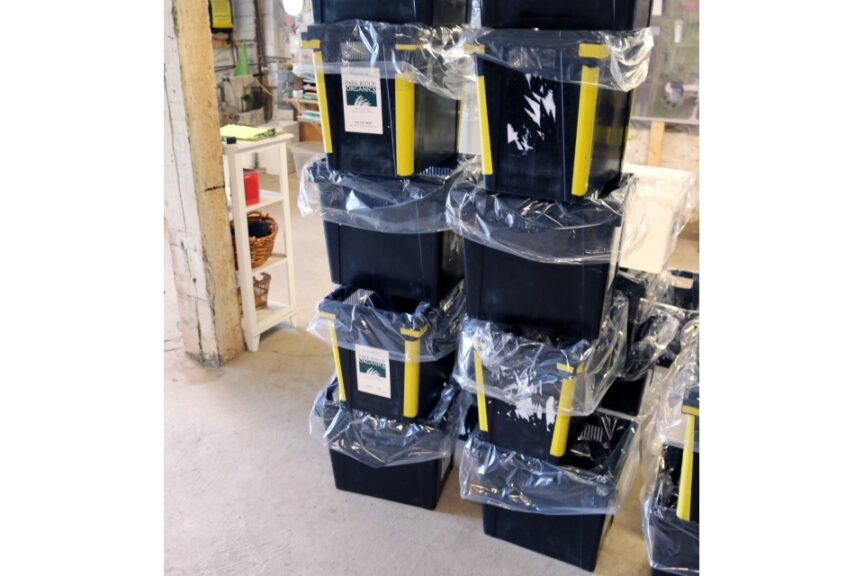
Park Ridge Organics began using re-useable plastic boxes with a liner bag prior to the pandemic. It did so to save money, but the improved sanitation and ease of use for the customer ended up being major selling points.
"Yes, it's using plastic, but we don't have to bag individual items any more," Calvey says. "We feel like we're reducing our plastic use."
Another convenience? Speed. The liners makes it faster for customers to get in and out of a pickup site.
-
4 of 9
Mini Greenhouse Sheets Simplify Tasks
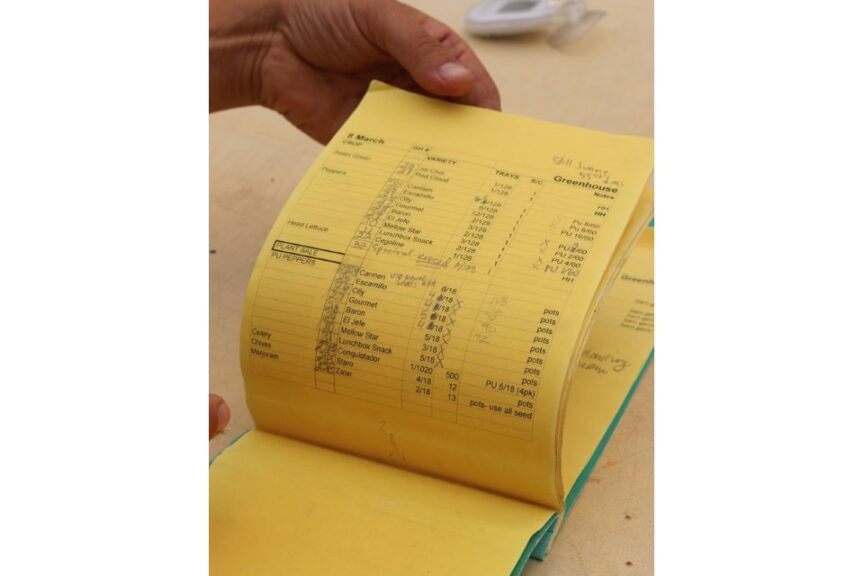
Like most farms, Park Ridge Organics has a master farm spreadsheet which organizes the master plan of when to plant seed and transplants.
The transplant piece of that plan is printed out and kept available for anyone working in the greenhouse.
"It's a super important piece of information," Calvey says. "A whole lot of thought goes into this."
The worksheet allows the farm crew to track when it's time to plant each transplant crop. And to keep note of when timing is off, making the following year's planting schedule more accurate.
"Here's a good example. We liked the timing of our spring and summer broccoli. But the fall broccoli came in too early," Calvey says. "So we can delay the planting the next year. It gets recorded and changed."
The plan for the next year's greenhouse planting book takes place in November or December.
"We're ordering seeds off of that plan. We did that planning so fresh off the previous season, we trust it a great deal," Calvey says.
The one time Calvey decided to go against the plan, she learned a lesson.
"We do a lot of lettuce, transplanting it every week," she says. "We had planned to do four tray for every planting. I thought, 'That can't possibly be enough, we're going to switch to six trays.' But we weren't harvesting it all. We should trust our plans."
-
5 of 9
Simple Booklet Design
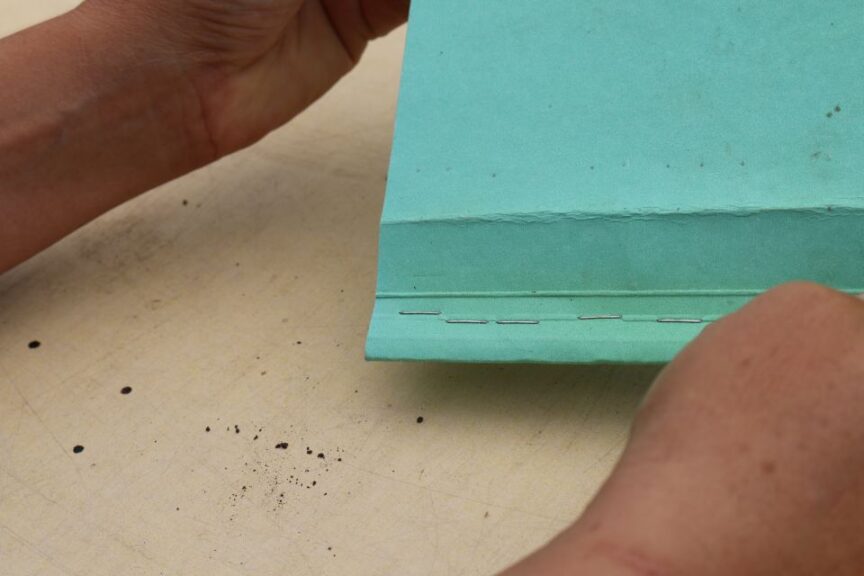
The greenhouse planting book has an easy design. Calvey prints the list for each week on a half page. She then cuts a binder in half, inserts a season's worth of weekly planting lists and staples the bottom of the half folder.
-
6 of 9
Using Landscape Cloth Instead of Mulch
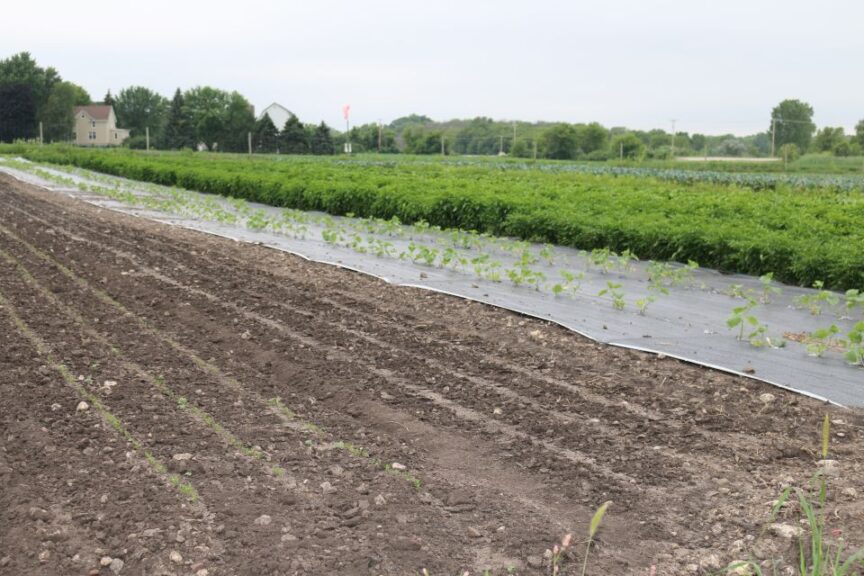
Park Ridge Organics experimented with using landscape fabric as a mulch this year.
"We're definitely going to continue with that," Calvey says. "We were using straw as our mulch; the fabric was easier."
Not only did it control weeds well, her crew found harvesting was easier.
"It was easier to navigate, and the fruit was easier to see," she says.
After being out in the field for six to eight weeks, the fabric is still in good condition. One risk Calvey heard of is the used fabric can transfer disease from one crop to the next.
"I know of some farms who have come up with treatments, including treating it with chlorine as its rolled up," she says.
She is considering doing the same in the future.
-
7 of 9
Park Ridge open task board
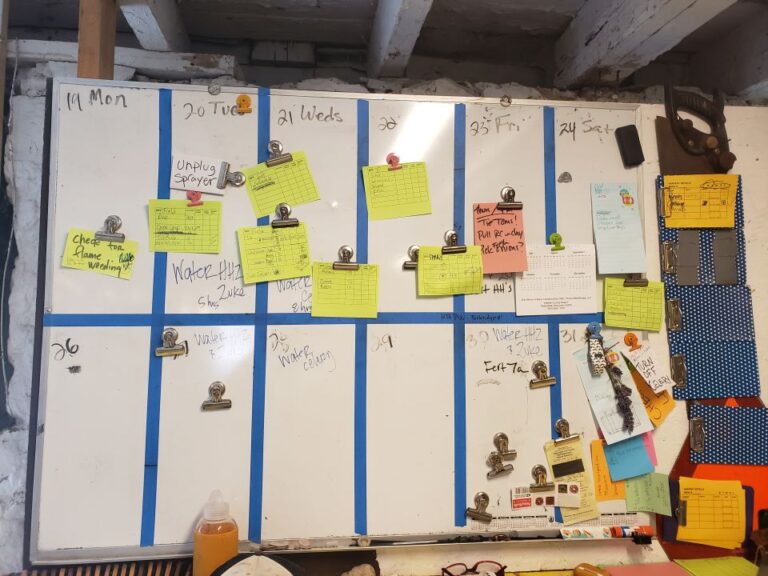
Park Ridge Organics uses a two-week open-task board to help stay organized.
"It allows for a transparent dialogue between the crew about all the jobs that need to be done," Calvey says.
Calvey creates the task slips on Sunday after driving around the farm. She uses scratch paper to jot down what needs to be done, from irrigation to seeding to harvest. Those tasks show up on the board, and a team member or Calvey takes one to work on, writing her initials when done.
Anyone can add to the list as they see things that need to be done, but Calvey creates most of the task lists.
"We tried doing a computer-based to-do list," Calvey says. "We found a farm is not conducive to a digital system. So we now use just pen and paper instead of over complicating it."
-
8 of 9
An Honor-System Self-Check Out
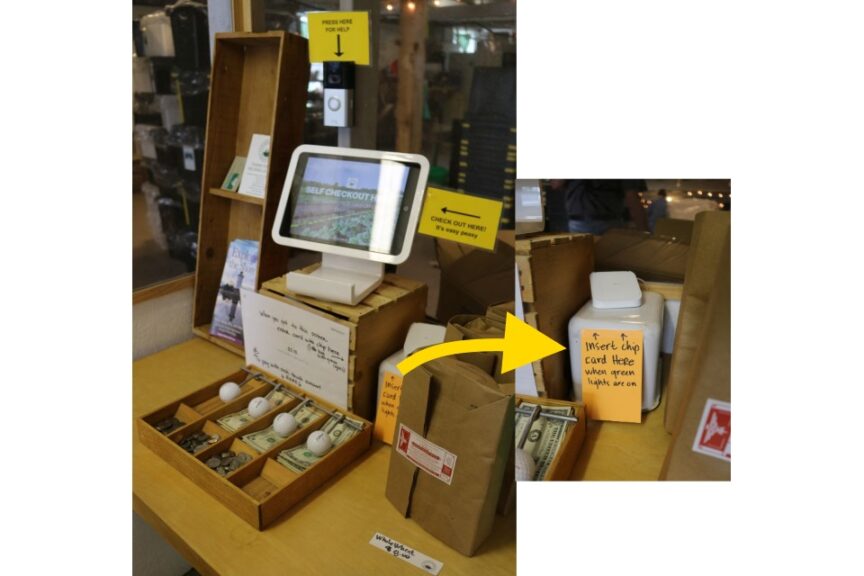
The store is self-serve, including the checkout system. Calvey has an iPad linked up with its POS system, complete with a card swipe function.
"I'm able to pull some really cool reports from it," Calvey says.
If customers get confused, a Ring doorbell connects customers to Calvey’s phone, even if she’s off-site.
The cash drawer relies on trusting customers to be honest. That said, the Ring doorbell acts as a security feature by providing video.
Park Ridge Organics will add a second self check-out kiosk next year, a few feet away from the original one for customer comfort.
"People struggle with finding the items. Some people are nervous with technology, and we'll let them spread out a bit more," Calvey says.
The idea may catch on locally.
"I know someone who wants to use it at a farmers market as a self-checkout line," Calvey says.
-
9 of 9
Finding Income from More than Vegetables
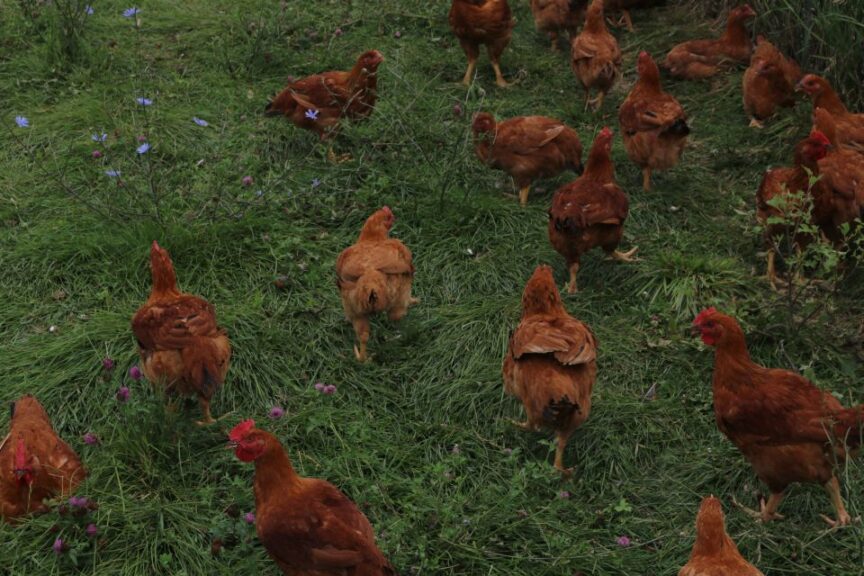
This past season marked the second year Park Ridge Organics sold chickens for meat, and the first year of managing hens in order to sell eggs.
It gives the farm a way to make money that doesn't involve expanding production.
It started simply enough, with Calvey wanting chickens for her own family. Then she ramped up for commercial sales. The demand was immediate, she says.
"I started with 150 chickens, and I'm now doing 200," she says.
The chickens are not certified organic, although they consume only certified organic feed. Despite not certifying the meat or eggs, customers are happy to support the farm.
"We charged $6.50 per pound, and our members were very happy to purchase those birds. The eggs are $6 dozen. And they sold out immediately," Calvey says.
With that kind of success, Calvey is busy planning the 2022 season.
"We're going to get our chickens out on our fields, setting them in blocks with a mobile hen house," she says.
The only predator she's had so far is a Cooper hawk, which hasn't been that much of a problem, despite it being gutsy enough to set on a post near people.
"We had too many roosters," she jokes.
The farm is just to the East of a highway running along a large lake, in a fairly suburban area.
"We don't have on-foot predators. So we mainly worry about hawks and owls. Luckily, we do have some good cover in their enclosure, so they have many places they can run and hide," Calvey says.
View all
Using Orchard Sprayers for Vegetables
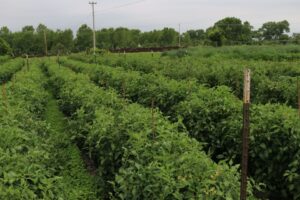
Paper Harvest Estimates Better for Field Work than Electronics
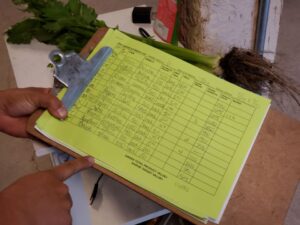
Permanent Boxes With Removeable Liners/Bags Are Safer
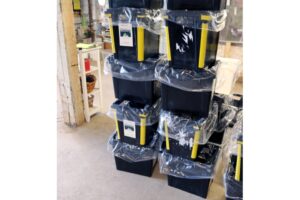
Mini Greenhouse Sheets Simplify Tasks
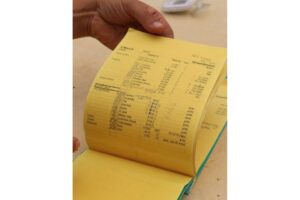
Simple Booklet Design
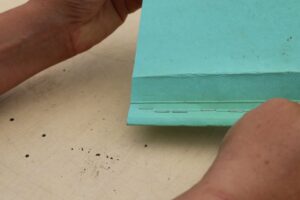
Using Landscape Cloth Instead of Mulch
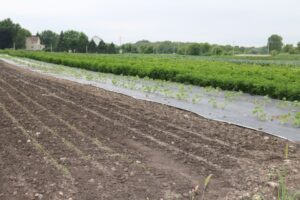
Park Ridge open task board
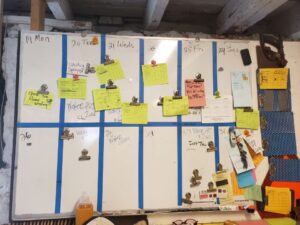
An Honor-System Self-Check Out
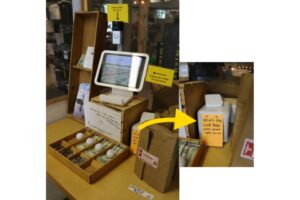
Finding Income from More than Vegetables
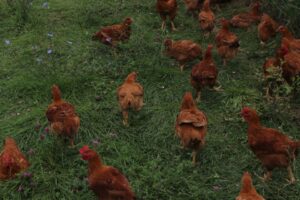
Read a full profile of Park Ridge Organics: How Big Business on a Small Farm Is Done
Subscribe Today For

Carol Miller is Editor of American Vegetable Grower. See all author stories here.







